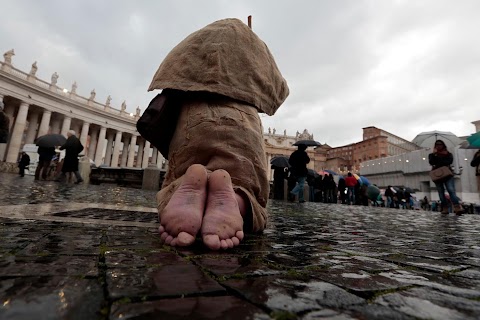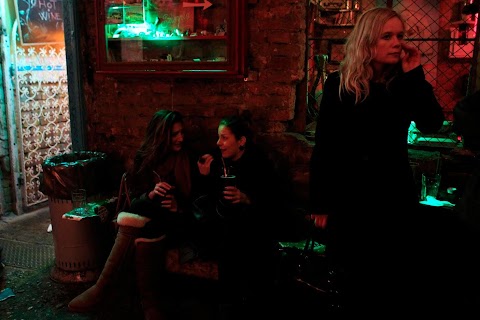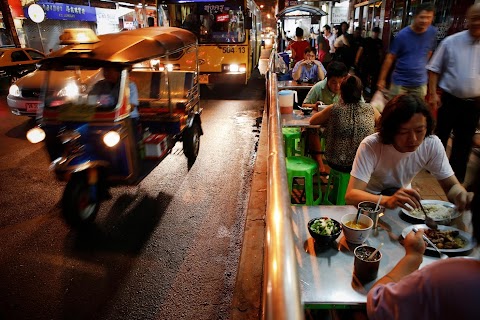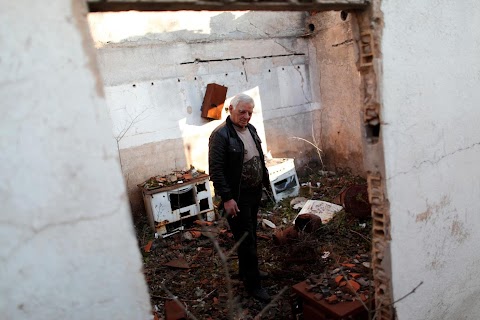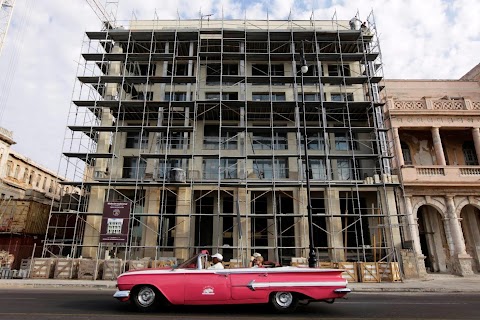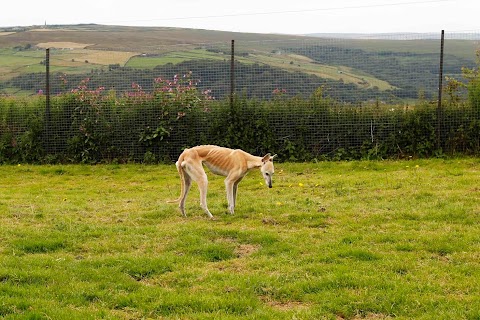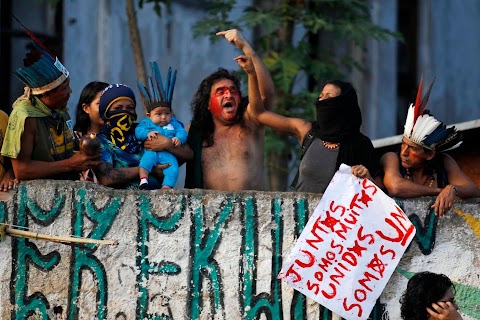
Evicted from the shadow of Maracana
 Pilar Olivares
Pilar Olivares
An Amazon native shouts at riot police who came to evict him and other tribespeople from Rio de Janeiro’s old Indian Museum, a crumbling building that stands next to the famous Maracana stadium, the main venue for next year’s soccer World Cup. Indigenous people had been squatting in the former museum since 2006, but have now been cleared out so it can be demolished to make way for construction projects ahead of the big 2014 sporting event.

Police went in to forcibly remove some of the roughly two dozen tribespeople living in the museum, although many others left peacefully after reaching a deal with the authorities for the construction of a new indigenous centre in another neighbourhood.
Violence broke out, however, as officers also used tear gas to disperse street demonstrations by sympathisers trying to block the eviction.
The police action came after a drawn-out legal battle between the authorities and representatives of the indigenous people who had lived in the abandoned museum complex for years and had resisted its demolition.

The derelict museum where the Indians lived stood directly adjacent to the Maracana stadium, which is being refurbished ahead of the 2014 World Cup and 2016 Olympic Games. The museum area was originally intended to become a parking lot for the stadium, but after the protests Rio authorities decided to build a sports museum on the site.
Slideshow

A partially-shredded cloth hanging adorns the museum's entrance in January.

An indigenous woman living there at the time takes a bath.

A girl plays on a swing at the old site.

An indigenous man paints a woman's body for a ceremony at the Indian Museum a few days before the squatters' eviction.

A native Indian walks through the museum grounds.

Two supporters of the Indians cook lunch at the old museum. They are among a larger group of students and social activists who have been standing with the indigenous squatters against the demolition.

An indigenous man sleeps in a hammock inside the old building.

A woman from the Guajajaras tribe paints her baby's face a few days before the eviction took place.

Another member of the community living in the museum plays a flute.

A group of native Indians and some of their supporters dance together.

A girl from the Guajajaras tribe sits in a hammock.

A native Indian living at the museum holds a flaming pot.

A police officer uses pepper spray on supporters of the native Indians during a protest against the community's eviction.

A demonstrator supporting the Indians is pulled by a military officer during the street clashes.

Members of the media film one of the protestors as she lies in a cloud of tear gas.

Two of the native Indians' supporters observe police officers from the top of the old Indian Museum.

A military police officer arrests one of the indigenous men who had been living inside the museum.

A indigenous woman bows her head inside a municipal vehicle after leaving the Indian Museum. The Indians were taken to alternative housing provided by the city.

Protestors and members of the media wait for the native Indians to come out of the museum complex.


